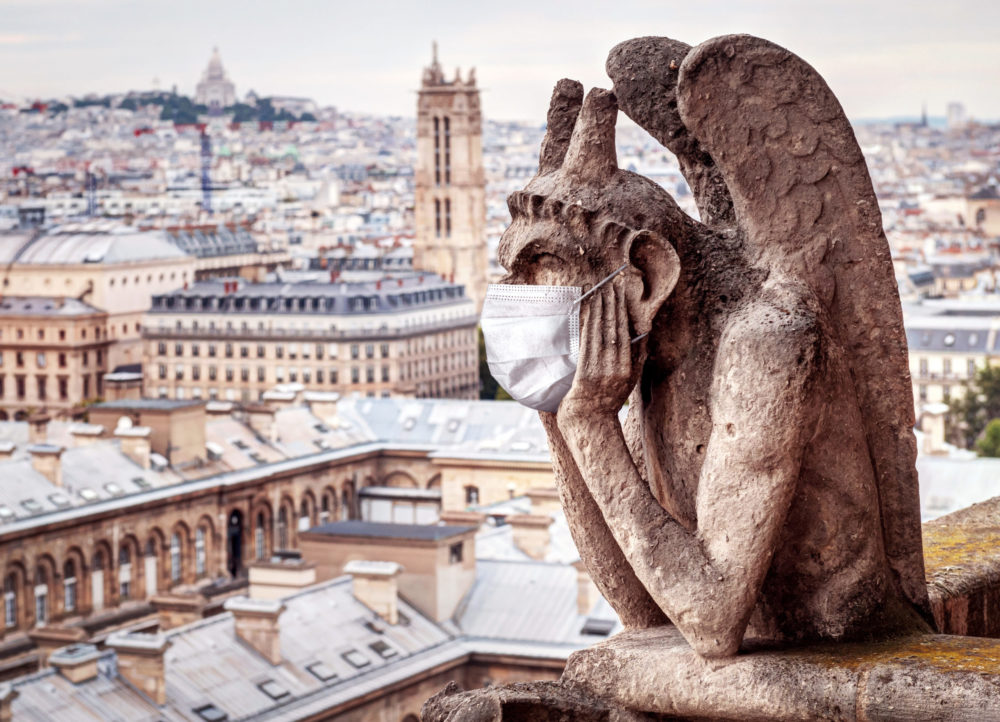After staying home and staying safe for the last year, most of us are eager to get out into the world and explore. Beginning April 19, 2021, all American adults will be eligible to receive the COVID vaccine. Which leaves us asking, how will tourism develop in the post-pandemic world? When will global tourism be revived? Will vaccine passports play a role? And what, if anything, have tourism marketers learned throughout all of this?
The Reality versus Marketing
According to a new report from the U.N.’s World Tourism Organization, one-third of the world is completely closed to international tourism. At the same time, many countries implement new COVID restrictions as variants spread. Places like Puerto Rico and Mexico struggle to remain open as tourists ignore quarantine times, curfews, and mask mandates. Travel marketers and agencies are eager to get back to business as usual. Still, we see practices that seem to gloss over the reality hurting local communities, making the industry somewhat complicit in negatively impacting residents’ safety and long-term health and survival of more vulnerable and foreign destinations.
Many travelers feel like they are doing a good deed and “helping to save the travel industry,” a narrative that we directly blame on irresponsible marketing and messaging. What many fail to recognize is that this savior complex is harmful to the local community. Not only are some people traveling irresponsibly and disregarding local laws, but catastrophic events like this pandemic can also lead to displacement and gentrification as vulture investors flock to locations of abandoned communities, low property value, shuttered businesses, foreclosed homes, and where locals struggle to find work in a flailing economy.
The media and travel promotional campaigns are not showing that local citizens have been fighting for their government to recognize the damage unrestricted tourism is causing them. In Puerto Rico, at least 1,079 tourists have been arrested for assaulting police officers, lying on their traveler’s declaration form, and violating Covid-19 restrictions. When Martin William Drew was asked to put his mask on in a grocery store, he refused and spat on the grocery clerk, which led to Drew receiving a swift punch in the face. Despite all this, Puerto Rican tourism marketing agencies are actively hiring foreign influencers to promote travel to the island now.
The Reality versus Plane Travel
I recently traveled by plane for work after being extremely isolated for the last six months. At the Cancun airport, I encountered groups of tourists socializing without their masks on. Sharing maskless travel stories and fashion finds as we all waited to board our flight. My first thoughts were, “Who’s in charge here? Who is responsible for enforcing the mask mandate at the airport? Who is watching out not just for the other travelers, but most importantly for the staff having to service these people directly?”
I had the same issue on the airplane with a young man sitting in my row who refused to wear his mask over his nose. Instead, he chose to wipe his runny nose on his hand repeatedly while playing on his cell phone. A flight attendant did ask him to wear it correctly after I touched my nose and looked at him. His compliance was short-lived.
Recent headlines prove how dangerous it can be for flight attendants to enforce in-flight mask rules. A Delta passenger faces a $27,500 fine for assaulting a flight attendant during a dispute over wearing a mask. A JetBlue passenger faces a $14,500 fine after allegedly disrupting a flight during a dispute over his face mask and alcoholic beverages. An Allegiant passenger was removed after asking a flight attendant to wear a face mask.
Although a negative COVID test is required before boarding a flight, while I searched for a testing facility before my flight, I was offered a counterfeit negative COVID test for the low price of $25. All he needed was my name, birthday, and email address! This is probably how this doctor was on a recent flight with an infected passenger. In his case, the airline staff refused to protect other passengers or track the passenger with symptoms post-flight. I would also add that the vendor of counterfeit negative COVID tests is in high demand and doing very well.
The World Travel & Tourism Council’s annual Economic Impact Report (EIR) revealed that the global Travel & Tourism sector suffered a loss of nearly $4.5 trillion last year due to COVID-19. Domestic visitor spending decreased by 45%, and international visitor spending declined by 69.4%. However, the day I flew from Cancun to Charlotte, 1,549,181 other travelers passed through American airports compared to the 108,977 people who traveled on the same day last year. It sounds like post-pandemic tourism has already started to develop without a clear distinction on who is responsible for making sure that the rules are obeyed and enforced, nor who is accountable for the increasing deaths in countries around the world.
Road to Recovery
The World Travel and Tourism Council says the introduction of digital health passes, like the EU’s new ‘Digital Green Certificate,’ will encourage the travel sector’s recovery. According to their 2020 report, 45% of air passengers are ready for digital travel documents.
Iceland was the first European country to issue special passports to its vaccinated citizens. In February, Israel’s government began issuing its digital Green Pass. Other systems like CommonPass, Travel Pass, and New York’s Excelsior Pass have been developed to help streamline travel for those who have been vaccinated.
Most countries, excluding Brazil, are working towards building herd immunity with the use of a vaccine. The next logical step is to establish local and global health standards, instead of leaving it to each city, county, and country to set their own rules and regulations.
From personal interactions, we’ve all learned that everyone has their own idea of COVID safety. This is why tourist destinations that have remained open continue to have issues managing health codes. Countries and communities need to come together to discuss and agree on mutual safety standards to resume travel in this post-pandemic world. Marketers need to listen to the locals’ voices on the ground and prioritize their needs and concerns. We need to instill an industry code of people over profit – something very few are doing well.
Digital health passes will help streamline travel once most of us are vaccinated. The concern will then shift to our digital footprint and data security. This will probably mean the development of new laws and encryption systems that will safeguard people’s privacy.
Finally, each country will have to commit to either closing its borders or sharing its vaccines. After much discussion, the United States sent 1.5 million doses of AstraZeneca’s COVID-19 vaccine to Mexico last month. Mexico will receive 2.5 million doses of the vaccine, and Canada will receive 1.5 million doses.
Innovation is always a positive result of the change. Singapore seems to be at the forefront with the world’s first quarantine-free international bubble facility. Connect@Changi is the solution for short-stay quarantine-business trips. Offering self-service rooms made airtight by floor-to-ceiling glass panels, pre-delivered meals, and two enclosed courtyards to help minimize contact between guests and frontline staff. International guests can meet with Singapore-based guests who have completely separate entrances, exits, and ventilation systems.
France has just decided to ban short domestic flights for trips covered by train in under two-and-a-half hours. In addition to the 4 billion euro contribution to Air France, the government is taking a stand against carbon emissions. To cut carbon emissions by 40% in 2030 from 1990 levels.
The future of travel is still under construction. Still, as we rebuild, we must constantly ask ourselves who is responsible for enforcing new and old restrictions and who is benefiting from these changes. And marketing agencies in the tourism industry have a responsibility to protect those who serve their travel demographics. It is no longer acceptable to ignore the plight of communities in the destination they promote or do business in, nor is it good business to continuously put profit over locals’ lives.


